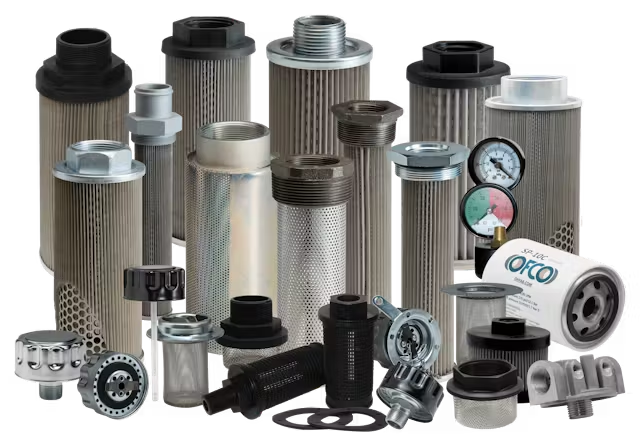Hydraulic systems, which power various industries, rely on filtration for performance and longevity. Custom filters offer a revolutionary approach to maintenance and optimization, allowing engineers to design solutions tailored to specific operating conditions and contaminant challenges. This targeted filtration significantly improves system efficiency, reduces downtime, and extends equipment lifespan, making a critical difference compared to standard solutions.
Understanding Hydraulic Systems
Hydraulic systems operate on Pascal’s principle, which states that pressure applied to a confined fluid transmits equally in all directions. This fundamental concept allows relatively small input forces to generate tremendous output power, making hydraulic systems incredibly efficient for heavy-duty applications.
Key Components and Their Functions
The heart of any hydraulic system includes several essential components working in harmony. The hydraulic pump generates flow and pressure, drawing fluid from the reservoir and pressurizing it for distribution throughout the system. Control valves direct this pressurized fluid to specific actuators, while cylinders and motors convert hydraulic energy back into mechanical work.
The reservoir serves multiple purposes beyond simple fluid storage. It allows air bubbles to escape, provides cooling for the hydraulic fluid, and acts as a settling tank for contaminants. Heat exchangers maintain optimal operating temperatures, while accumulators store pressurized fluid for peak demand periods or emergency operation.
Each component must function flawlessly to maintain system integrity. When one element fails or operates below specification, the entire system suffers reduced performance, increased wear, and potential catastrophic failure.
The Importance of Filtration
Hydraulic fluid contamination represents the leading cause of system failures, accounting for approximately 75% of all hydraulic component breakdowns. Clean fluid is absolutely essential because hydraulic components operate with extremely tight tolerances—often measured in micrometers.
Common Contaminants and Their Effects
Particulate contamination comes from various sources, including manufacturing residue, wear particles from system components, and external dirt entering through seals or breathers. These particles act like sandpaper within the system, accelerating wear on pumps, valves, and cylinders.
Water contamination proves equally destructive, reducing fluid lubrication properties and promoting corrosion throughout the system. Even small amounts of water can cause cavitation damage in pumps and create ideal conditions for bacterial growth, which produces acidic byproducts that attack system components.
Chemical contamination occurs when incompatible fluids mix or when system components break down, releasing harmful substances into the hydraulic fluid. This contamination can alter fluid properties, causing seals to swell or shrink and affecting system performance.
Temperature-related contamination happens when overheating breaks down hydraulic fluid, creating varnish deposits that clog small passages and interfere with valve operation. These deposits are particularly problematic in servo valves and other precision components.
Custom Filters: Tailored Solutions
Generic filters follow a one-size-fits-all approach that may not address the specific challenges facing your hydraulic system. Custom filters, however, are engineered to match exact operating conditions, contamination types, and performance requirements.
Benefits of Custom-Designed Filters
Custom filtration solutions offer precise micron ratings tailored to your system’s cleanliness requirements. While a general construction application might function adequately with 25-micron filtration, precision manufacturing equipment may require sub-micron filtration to maintain optimal performance.
Flow rate optimization ensures custom filters handle your system’s specific flow requirements without creating excessive pressure drops. Standard filters often compromise between flow capacity and filtration efficiency, while custom solutions maximize both parameters.
Temperature and pressure ratings can be precisely matched to operating conditions, ensuring filter integrity under extreme conditions. This is particularly important for mobile equipment operating in harsh environments or industrial systems with demanding duty cycles.
Chemical compatibility becomes critical when dealing with specialized hydraulic fluids or aggressive operating environments. Custom filter media can be selected to resist specific chemicals while maintaining filtration performance.
Size and mounting configurations allow custom filters to fit within existing space constraints or unique installation requirements. This flexibility proves invaluable when retrofitting older equipment or designing compact systems.
Real-World Applications
Consider a mobile crane manufacturer facing frequent hydraulic system failures in their largest capacity models. Standard filtration couldn’t handle the extreme pressures and flows required for heavy lifting operations. Custom high-pressure filters with specialized bypass valves were developed, reducing system failures by 60% and extending component life significantly.
A precision injection molding facility struggled with inconsistent part quality traced to hydraulic system contamination affecting their OEM engines‘ performance. Custom filters with ultra-fine media and integral condition monitoring were installed, achieving ISO 4406 16/14/11 cleanliness levels and eliminating quality issues.
Marine hydraulic systems face unique challenges from saltwater exposure and extreme operating conditions. Custom corrosion-resistant filters with specialized sealing systems have enabled offshore drilling platforms to achieve 99% uptime despite harsh operating environments.
Manufacturing facilities often require custom filtration solutions for automated production lines where hydraulic systems must operate continuously for months without maintenance. Multi-stage custom filters with automatic backwash capabilities have enabled 24/7 operation while maintaining optimal fluid cleanliness.
Measuring Success Through Performance
The impact of custom filtration extends far beyond simple contamination removal. Properly designed custom filters improve system efficiency by reducing internal leakage and maintaining optimal component clearances. This efficiency improvement translates directly to reduced energy consumption and lower operating costs.
Component life extension represents another significant benefit. Clean hydraulic fluid dramatically reduces wear rates, allowing pumps, valves, and cylinders to operate for years longer than systems with inadequate filtration. The cost savings from avoided component replacements often justify custom filter investment within the first year.
Maintenance intervals can be extended significantly with effective custom filtration. Systems that previously required monthly fluid changes may operate for six months or longer between services, reducing labor costs and minimizing downtime.
Predictable maintenance scheduling becomes possible when contamination is properly controlled. Rather than responding to unexpected failures, maintenance can be planned during convenient downtime periods, improving overall productivity.
Conclusion
Now that you have a better understanding of how contamination affects hydraulic systems and the benefits of proper filtration, you can take proactive steps to ensure your equipment operates at peak performance. Regular maintenance and effective filtration can help extend the lifespan of your hydraulic system, reduce maintenance costs, and improve overall productivity.
